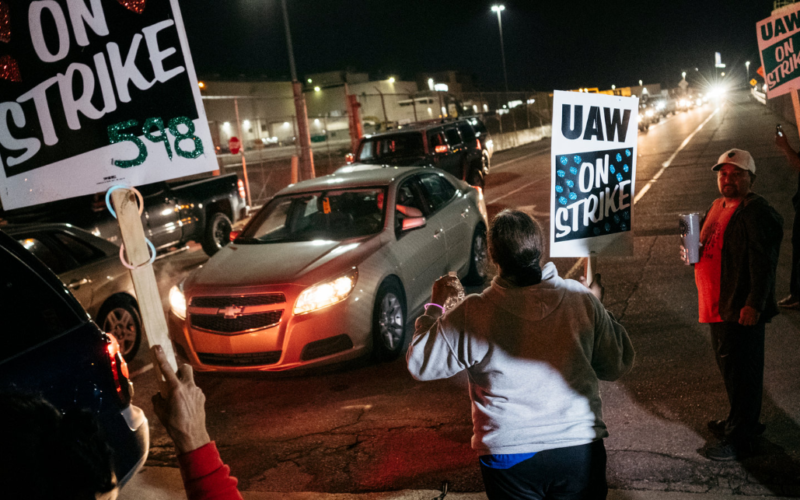The labor strikes within General Motors (GM) have evolved into an international issue as Canadian autoworkers represented by the union Unifor join their United Auto Workers (UAW) counterparts in the U.S. The strikes have been prompted by the failure to reach a tentative agreement for approximately 4,300 Canadian workers, adding to the ongoing labor disputes that have disrupted GM’s operations.
The Canadian autoworkers’ strike complements the ongoing UAW strike in the United States, which commenced on September 15 and has since expanded to include approximately 9,200 UAW members. The strikes in Canada, particularly in the province of Ontario, impact various GM facilities, including an assembly plant producing Chevrolet Silverado trucks, an engine production facility, and a stamping facility supplying parts for various vehicles.
The Canadian strike against GM comes after Unifor President Lana Payne expressed concerns about the automaker’s resistance to certain critical aspects of the tentative deal. Key issues include worker classifications, universal health allowances for retirees, and commitments for future product investments. Payne emphasized that these issues must be resolved before any agreement can be reached.
Unifor, representing 18,000 Canadian autoworkers at Detroit Automakers, has followed a more traditional negotiation approach compared to its U.S. counterpart. The union conducts separate negotiations with each automaker, using a deal reached with Ford Motor as a pattern for GM and Stellantis, the parent company of Chrysler.
Ford’s recent three-year agreement featured significant benefits for workers, including hourly wage increases, the reinstatement of a cost-of-living allowance to combat inflation, and an expedited progression for employees to reach top pay. The deal, covering over 5,600 workers at Ford facilities in Canada, was ratified by 54% of the voting workers.
Unifor’s patterned bargaining approach stands in contrast to the UAW’s new strategy of simultaneous negotiations with all three automakers. While the UAW has gradually escalated its strikes since they began, only a fraction of its members are currently on strike, affecting approximately 17% of those covered by the expired contracts.
The ongoing strikes have not only disrupted GM’s operations but also led to the layoffs of thousands of UAW members, including those at other GM facilities. Notably, a Kansas assembly plant producing Chevrolet Malibu sedans and Cadillac XT4 crossovers had to suspend production due to the strikes.
The inclusion of Canadian autoworkers in the GM strikes adds complexity to the ongoing labor disputes. The challenges faced by both Unifor and the UAW highlight the intricate nature of negotiations within the automotive industry and the significant impact these strikes can have on production and workers across North America. As negotiations continue, the labor disputes remain a critical issue for GM and the broader automotive sector.








